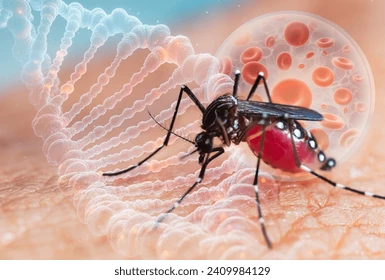
Medical entomology is a fascinating and vital field that bridges the disciplines of entomology, public health, and medicine. This course offers students an in-depth exploration of arthropods—particularly insects and ticks—that play significant roles in human health and disease. With a focus on vector-borne diseases, the curriculum examines the biology, ecology, and behaviour of medically important arthropods, while emphasizing their interactions with humans and pathogens.
In addition to studying disease transmission mechanisms, the course covers topics such as vector control strategies, global epidemiology, and the societal impacts of these diseases. Through lectures, case studies, and hands-on activities, students will gain a comprehensive understanding of the challenges posed by vector-borne diseases and the innovative solutions being implemented to mitigate their effects.
By the end of the course, participants will not only appreciate the complexity of arthropod biology but will also be equipped with knowledge applicable to careers in medical research, public health, and pest management.
General Learning Outcomes:
1. Understanding Arthropods and Their Biology:
Gain knowledge of the biology, anatomy, and ecology of medically important arthropods, including insects and ticks.
2. Vector Identification:
Develop the ability to identify key arthropod vectors associated with major human and animal diseases.
3. Disease Transmission Mechanisms:
Understand the processes and mechanisms through which vector-borne diseases are transmitted.
4. Epidemiology of Vector-Borne Diseases:
Analyze the global distribution, epidemiology, and public health implications of vector-borne diseases.
5. Vector Control Methods:
Explore sustainable and effective strategies for controlling vectors to mitigate disease transmission.
6. Research and Practical Skills:
Acquire skills in arthropod sampling, identification, and laboratory techniques, including the study of vector-pathogen interactions.
7. Critical Thinking and Problem Solving**:
Enhance the ability to apply critical thinking to real-world issues in medical entomology and propose innovative solutions.
8. Public Health Advocacy:
Build awareness of the societal impacts of vector-borne diseases and the importance of educating communities.
Course contents:
1. Introduction.
2. Insects Anatomy and Morphology.
3. Mosquitoes.
4. Black-flies.
5. Sand-flies.
6. Tsetse- flies.
7. Biting Midges.
8. Horse-flies.
9. Fleas.
10. Sucking Lice.
11. Triatomine Bugs.
12. Soft and Hard Ticks.
13. Bed Bugs.
14. Houseflies and Cockroaches (Assignment)
Course assessment:
Midterm: 25 %
Assignment: 15 %
Final Exam: 60 %
Total: 100%
Instructor: Raiyed Mohammed Awad Adeel
- Teacher: Admin User